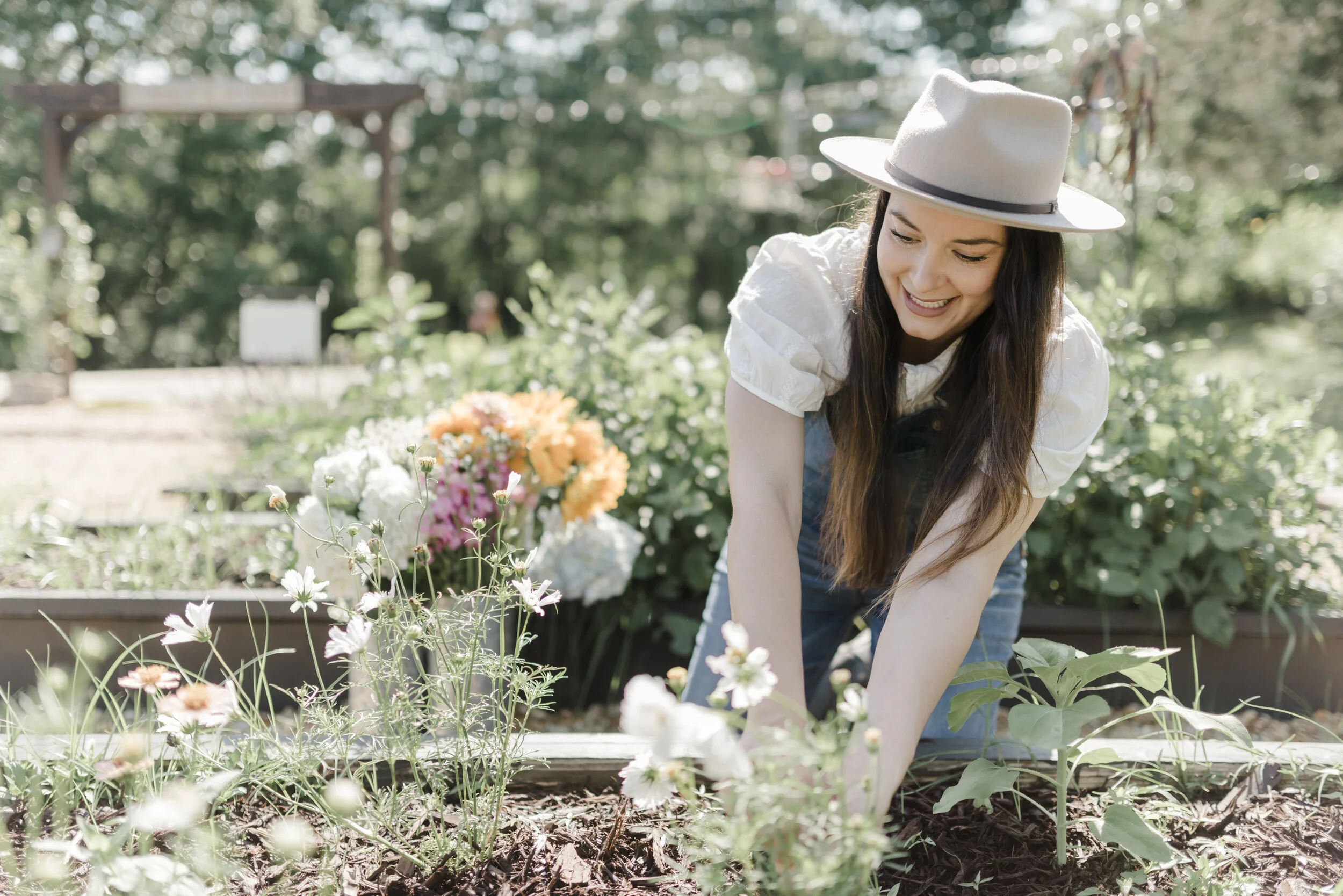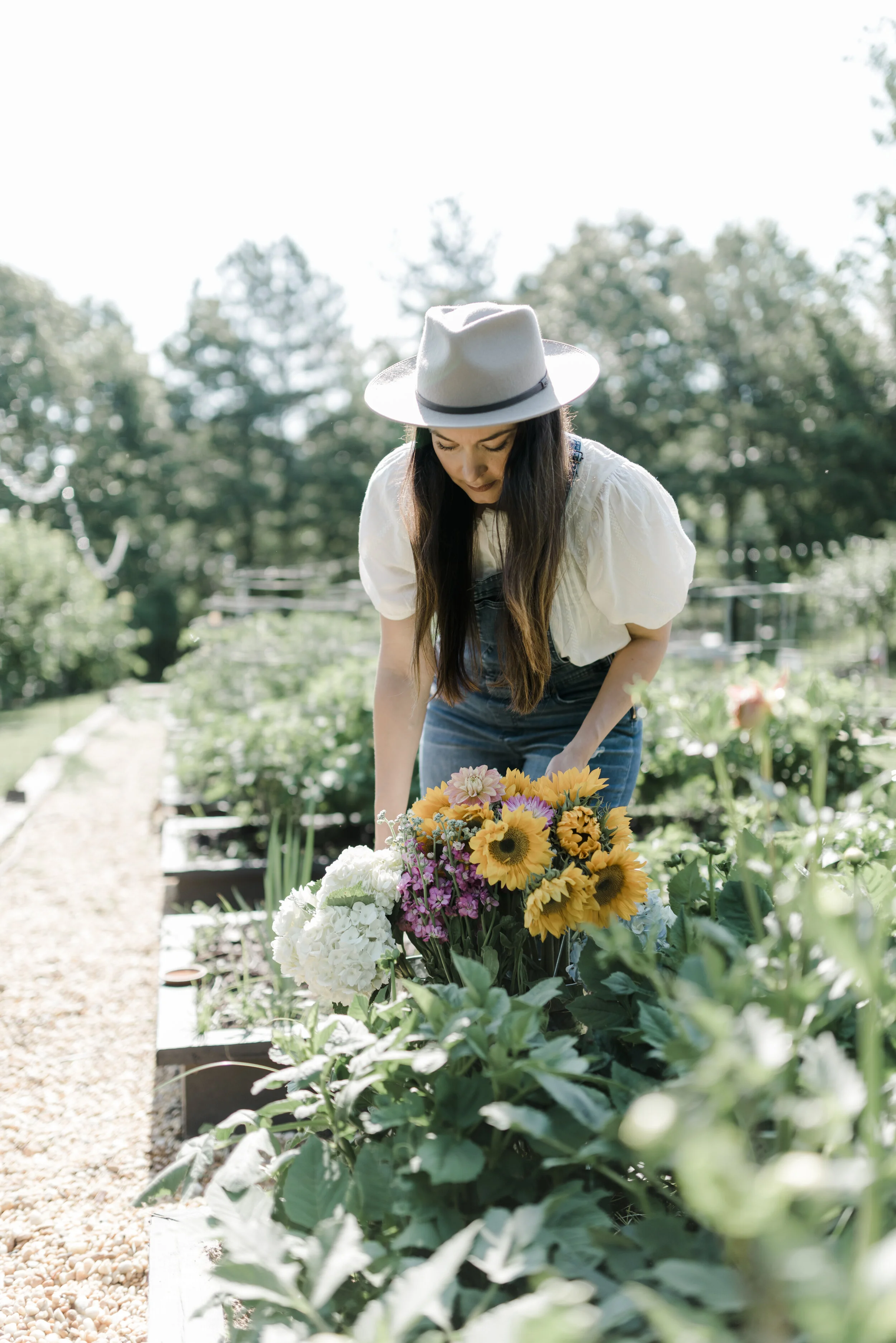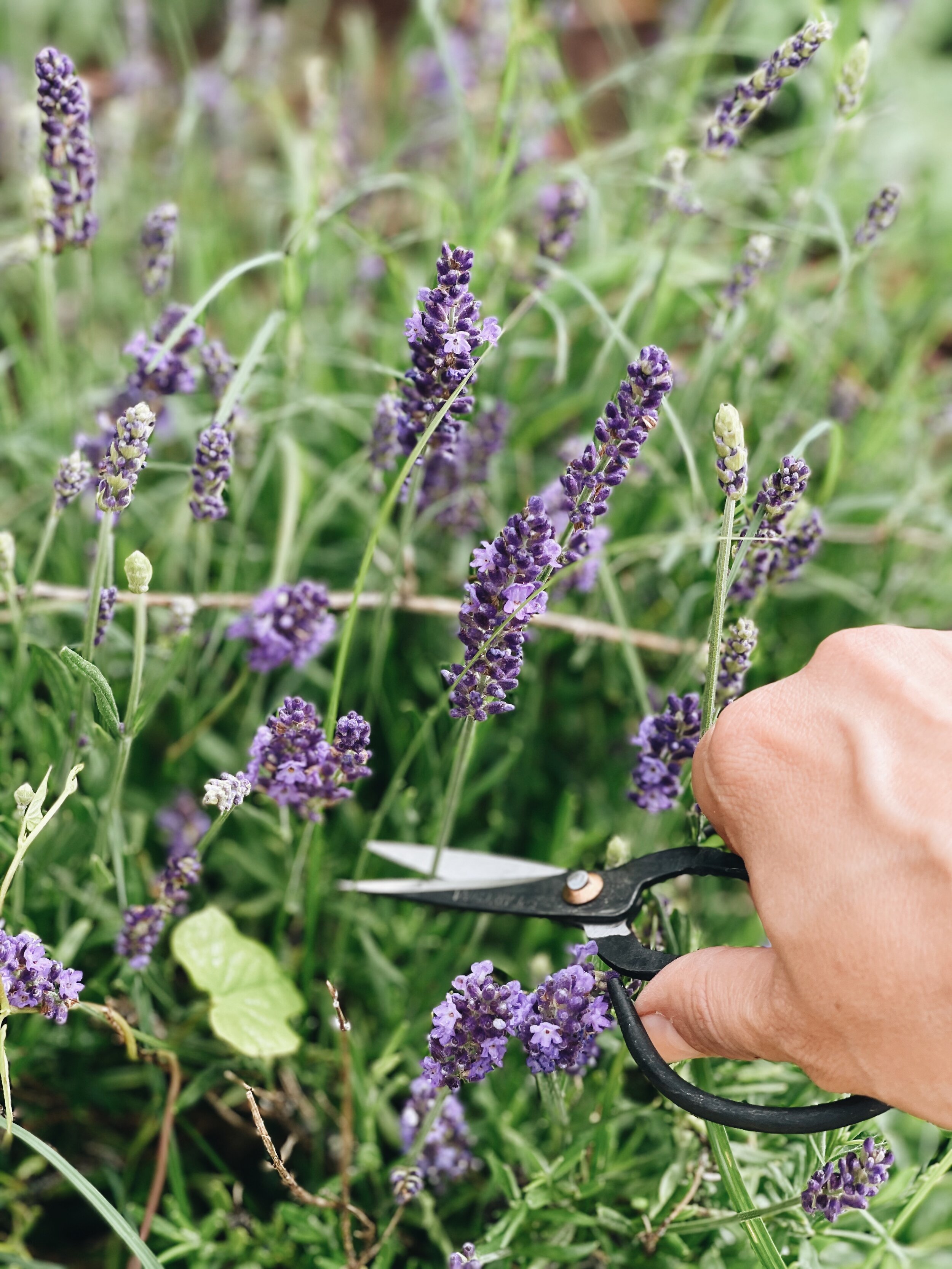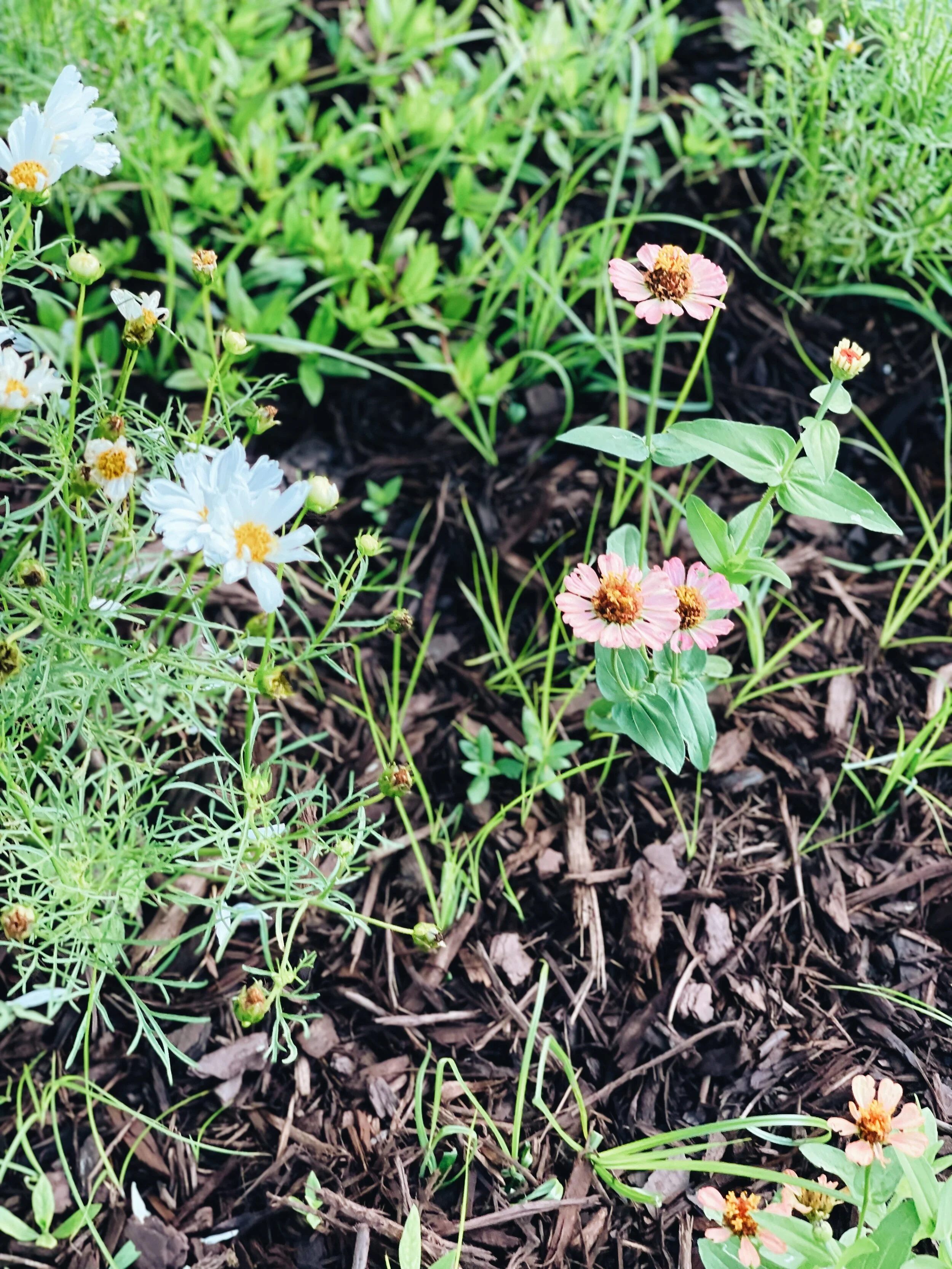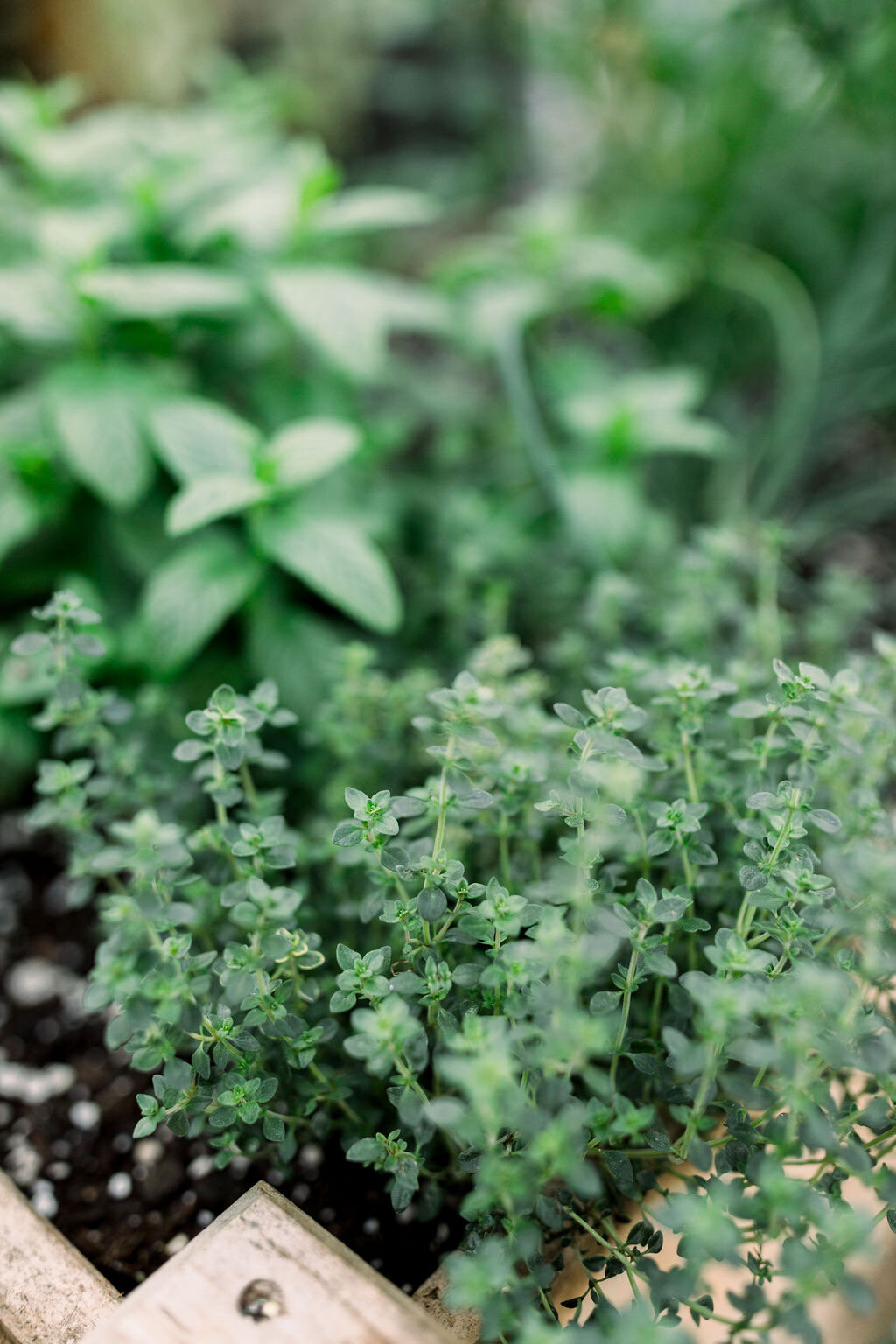My Top 23 Herbs and Flowers for Organic Pest Control in the Garden
We are huge fans of living an organic life and honestly believe in the advantages and joy it brings us. From growing our own food, using organic cleaning agents such as natural laundry detergent (find the recipe HERE), to using animal manure for compost. The more natural, the better for us! And the same goes for our gardening techniques and organic pest control in the garden.
We try to stay away as much as possible from the need to use pesticides and chemical sprays. Instead, we choose to control pests and diseases with companion planting by using flowers and herbs around our gardens.
What is Companion Planting?
It is a traditional organic gardening practice where certain plants enhance each other's growth. Early Native Americans called it the "Three Sisters." system. This system referred to planting corn, squash, and beans together in a symbiotic sisterhood. In this system, the tall stalks of the corn act as natural trellises for the vines of the beans, and the squash quickly grew over the soil to keep out weeds. All while deterring rodents and raccoons from chomping down on the tasty maize kernels.
Companion planting helps to enrich the soil, encourages optimum growth of different plants, increases bio-diversity by encouraging bees and butterflies, and works excellent for organic pest control in the garden.
It's a fantastic way for the garden to take care of itself, so it cuts down on your workload and reduces the need for insecticides.
Using Flowers and Herbs for Organic Pest Control in the Garden
I love to plant flowers and herbs around my vegetable gardens to keep the bugs and pests at bay. These buddies are not welcome here!
Just like us, bugs have certain appetites, but get turned off by strong smells and flavors. By using natural elements you reduce the need for nasty chemical sprays. Herbs, in particular, can be fantastic natural bug repellents. While flowers can serve as a sort of neon sign, welcoming in and pointing the way for pollinators like hummingbirds, bees, and butterflies. All beneficial for the health of your garden!
Some plants have strong aromatic leaves, and other plants release chemicals from their root systems to keep the bugs away and protect other plants. Specific properties of plants also invite beneficial insects and create the perfect habitat for predators such as ladybugs and praying mantis.
Benefits of Using Natural Pest Controllers
Natural pest control and remedies may seem like more effort initially and take longer to be effective but are definitely more beneficial in the long run. Here are some benefits of using natural pest control:
As mentioned, you will cut down on time spent trying to fight pests, as the biological processes will do the work.
Lighten your carbon footprint by reducing insecticides, which minimizes the exposure of chemical toxins to humans, your pets, plants, soil, water, and the environment.
It keeps your garden healthier in the long run as you are not putting nasties into the ground, which makes it harder for plants to thrive.
Pests won't develop resistance to natural methods so quickly as opposed to chemical methods.
You won't deter away or kill the beneficial bugs who prey on pests and that actually help your plants.
Organic Pest Control List
Flowers:
ALLIIUMS - A member of the onion family. One of the best defenses against cabbage worms, carrot flies, and slugs.
CHRYSANTHEMUMS - Repels mosquitos, roaches, beetles, ticks, silverfish, lice, root-knot nematodes, and ants.
COSMOS -Cosmos flowers are magnets for beneficial insects like lacewings, parasitic wasps, tachinid flies, and hoverflies that feed on many pest insects and provide free pollination services. They also do a good job of repelling the corn earworm.
DAHLIAS - Dahlias don't just look pretty, they also repel nematodes and do an excellent job of attracting and feeding pollinators.
FRENCH MARIGOLDS - Aphids prefer them over your veggies. They repel whiteflies, kill nasty nematodes and eelworms. Ladybugs are very fond of Marigolds.
GERANIUMS - Deter many types of insects, including mosquitoes, leafhoppers, and corn earworms. Plant them with your corn, roses, grapes, cabbage, and rose bushes.
LAVENDER - Besides their lovely smell, their oils are perfect to use in repellents and when planted fresh, they ward off moths, scorpions, water scorpions, fleas, flies, and mosquitoes. Bees also love lavender!
MEXICAN MARIGOLDS - Keeps harmful insects and wild rabbits at bay. Plant Marigolds near your squash, melons, and tomatoes.
NASTURTIUMS - Known as a "trap crop," they attract cabbage moths, aphids, whiteflies, squash bugs, and cucumber beetles to their leaves. Nasturtiums and asparagus work great together.
PETUNIAS - Plant near cruciferous veggies, beans, basil, tomatoes, grapes, corn, and peppers. Roses also do well when this natural insect deterrent is planted nearby. It repels aphids, tomato hornworms, asparagus beetles, leafhoppers, and squash bugs. These pests get trapped in their sticky stamens.
SUNFLOWERS - Draw aphids away from other plants. They are very strong plants, so they don't suffer easily.
Herbs:
BEE BALM - Not necessarily a pest repellent, but great at attracting beneficial critters and predators to your gardens, such as hummingbirds, bees, and butterflies.
BASIL - Repels flies, mosquitoes, the carrot fly, asparagus beetles, and whiteflies. Plant it with your tomatoes, cucumbers, lettuce, and spinach for healthy, tasty veg.
BORAGE - This herb helps to sweeten your tomatoes and strawberries and repels tomato hornworm and cabbage worms.
CATNIP - Repels just about everything except cats! This includes ants, flea beetles, aphids, the Japanese beetle, squash bugs, weevils, the Colorado potato beetle, the cabbage looper, and cockroaches.
CHIVES - This allium plant deters Japanese beetles, carrot flies, aphids, mites, and even rabbits. It has been said when planted with apple trees, it prevents scabbing.
CILANTRO- The strong fragrance of cilantro can attract beneficial insects and encourage them to stay in your garden to prey on other pests. Plant near tomato, spinach, dill, mint, and basil. Or plant in rows bordering fruits and vegetables.
DILL - Another herb that almost works for everything! It repels aphids, squash bugs, spider mites, the cabbage looper, and the small White. Best planted with cucumbers and onions but keep away from your tomatoes as it attracts tomato hornworms.
EUCALYPTUS -It smells nice, and it looks lovely in the garden or a flower arrangement! Eucalyptus helps to keep away aphids, the cabbage looper, and the Colorado potato beetle.
GARLIC - Garlic repels root maggots, the cabbage looper, Mexican bean beetles, the peachtree borer, carrot flies, and slugs.
LEMONGRASS - This plant contains citronella, which mosquitos hate. It can also repel whiteflies. Plant with other plants that require the same warm and sunlight conditions.
MINT - The oils found in mint and all other herbs in the mint family, including oregano, peppermint, sage, hyssop, and lemon balm, can help keep mosquitoes, aphids, the cabbage looper, flea beetles, squash bugs, whiteflies, and the small Whites away.
ROSEMARY - With its pungent scent, rosemary can help to repel the cabbage looper, carrot fly, cockroaches, mosquitoes, slugs, snails, and the Mexican bean beetle. When planted near peas, lettuce, and beans, rosemary will also help to protect the plants from rabbits.
THYME- The herb deters mosquitoes, earworms, maggots, hornworms, and whiteflies. The leaves must be bruised for the chemicals to be released that deter the pests. Squeeze a few leaves every time you walk by your garden and it will help keep pests away!
Suggested Companion Planting for Your
Veggies and Herbs:
Garlic, onions, and chives can interfere with the growth of beans, peas, and lettuce.
Avoid mint, onions, and garlic near asparagus.
Dill and anise should not be near carrots and tomatoes.
Don't mix herbs such as dill and celery with carrots.
Cabbages and kale attract many pests, so grow them with herbs such as celery, dill, rosemary, onion, mint, thyme, and nasturtium.
Avoid growing basil with cabbages and kale.
Herbs and onions will help to protect cauliflower against pests.
Cucumbers do not like the companion of aromatic herbs such as sage, rosemary, basil, and sage.
Catnip, nasturtium, and marigold will do a great job in protecting potatoes. But, avoid planting potatoes and sunflowers together.
Your squashes will also be protected by nasturtium, mint, and catnip.
Plant nasturtium with your radishes for extra protection against pests.
Strawberries will benefit from the pest repellent properties of onions, sage, and thyme.
Plant rosemary around cruciferous vegetables, such as broccoli, Brussel sprouts, cabbage, and bok choy.
You can also plant Brussel Sprouts close to dill and thyme.
Friend, If you apply these companion techniques, I promise you will start seeing surprising and promising results over time. A garden that works together in harmony, just like mother nature intended it to be. Using natural and organic methods may not work so quickly as with chemical methods, but in the long run, it will pay off!
Happy Planting!
Annette xxx
PIN FOR LATER

